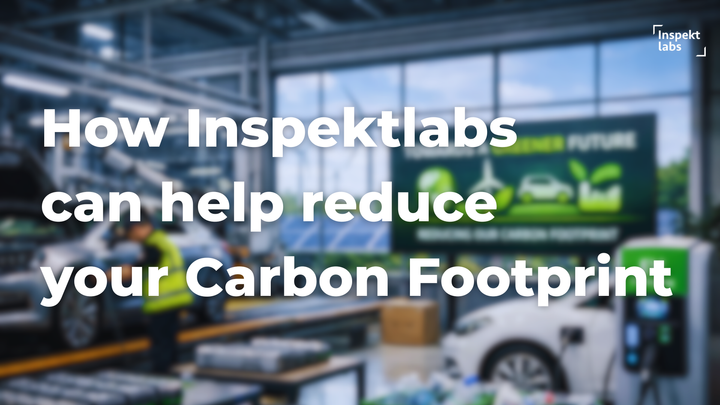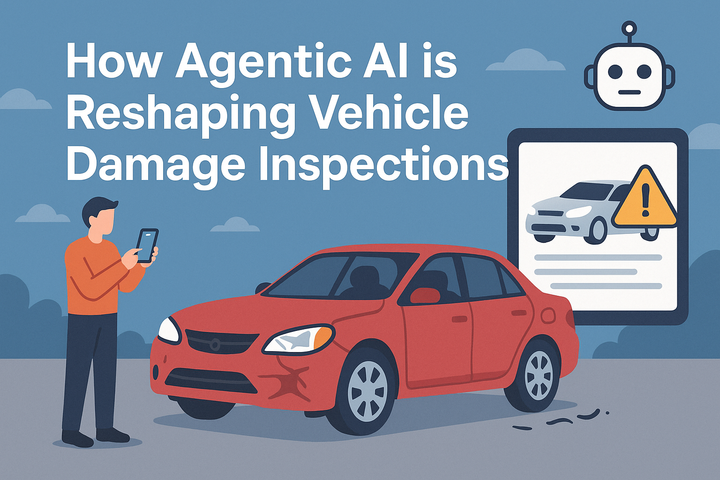5 smart ways Automotive companies can leverage tech to reduce operational costs in 2025
How can modern-day technology be leveraged to help Automotive companies save operational costs? Let's find out in this blog!
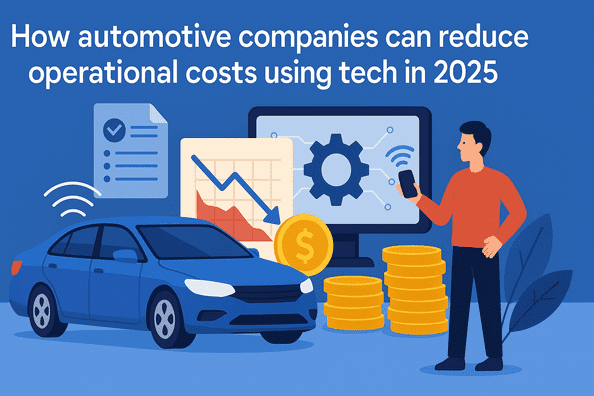
The automotive industry, from insurance and rentals to fleet management, is navigating a turning point in 2025. Digital and tech-enabled solutions have become the most effective way to reduce operational costs and scale sustainably.
Whether you're handling thousands of rental car inspection reports or streamlining claim cycles, modern technologies like AI, IoT, and automation are driving measurable efficiency.
In this blog, we will discuss five powerful ways businesses are leveraging tech to reduce operational costs across the automotive ecosystem.
#1 - Predictive maintenance with IoT and AI
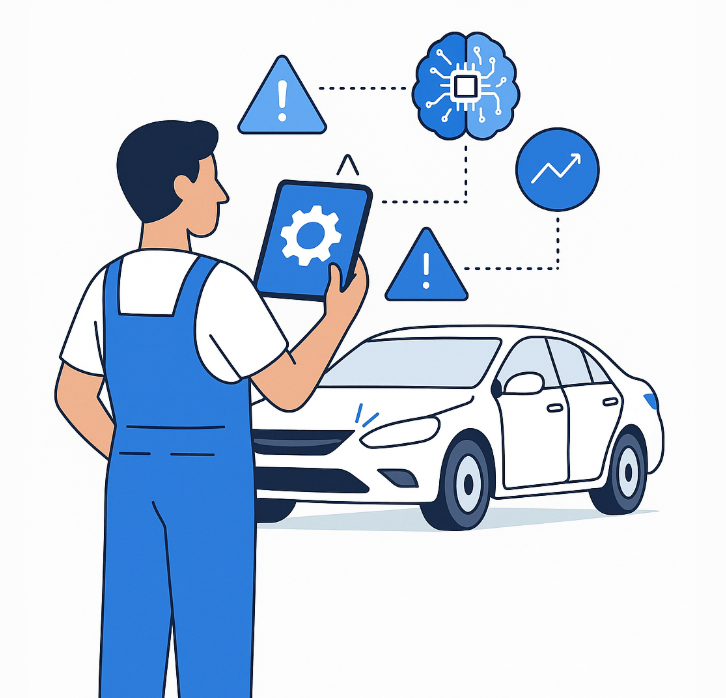
Predictive maintenance uses the power of IoT and telematics to track the critical vehicle component health and alert operators about potential failures before they happen. This proactive approach replaces expensive, reactive repairs with smart scheduling.
What it solves -
- Unplanned breakdowns and unnecessary scheduled maintenance
Benefits
- Lower repair expenses
- Longer vehicle lifespan
- Less downtime for fleet inspection teams and rental agencies
By minimizing downtime, predictive maintenance helps businesses reduce operational costs caused due to vehicle breakdowns. It also supports routine rental car inspection workflows by highlighting real-time service needs.
#2 - Automated vehicle valuation
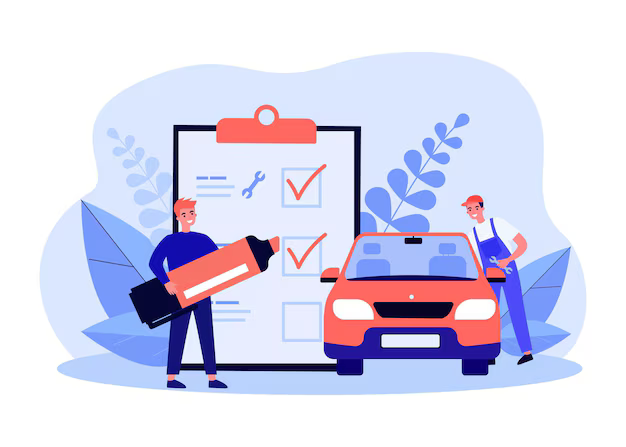
AI-powered vehicle valuation systems analyze prices from the past, condition reports, and market demand to generate accurate pricing. This reduces human error and inconsistency in used car resale or leasing returns.
What it solves -
- Manual pricing, guesswork, and under or overvalued vehicles
Benefits -
- Improved profit margins
- Faster turnaround for used vehicle sales
- Reduced losses
By integrating this into your rental car inspection and resale workflow, you can marginally reduce operational costs by minimizing idle inventory and improving your pricing accuracy.
#3 - AI-powered vehicle inspections
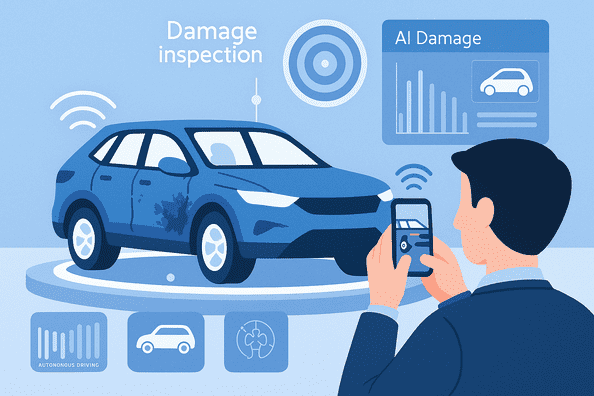
Manual inspections are inefficient, slow, and subjective. With AI-powered computer vision, companies can conduct consistent and automated vehicle inspections for insurance, leasing, post-accident repairs, pre-delivery checks, and resale.
What it solves
- Human error, fraud risk, and operational delays
Benefits
- Standardized inspection process
- Reduced manpower
- Fraud prevention
For car insurance providers, AI tech significantly reduces claims cycles. By automating vehicle inspections for insurance purposes, companies can not only improve speed and transparency, but also reduce operational costs caused due to disputes and reiterations.
These platforms also allow businesses to optimize both fleet inspections and retail operations by standardizing vehicle evaluation.
#4 - Seamless Insurer-Workshop integration
Many AI-based inspection platforms, including Inspektlabs, now offer end-to-end integration with insurer and workshop systems, removing the manual back-and-forth during claims and repairs.
What it solves
- Delays in repair approval and inconsistent pricing across regions
Benefits
- Instant repair quotes
- Live updates from workshops
- Quicker claim settlement
For automated insurance claims, this integration is a big step up. It allows insurers to evaluate repair timelines and cost estimates while removing the dependency on manual input.
The result? Smoother customer experiences and the ability to reduce operational costs by accelerating decision-making.
Additionally, AI car insurance workflows benefit from more predictable and efficient resolution, enhancing both operational and customer satisfaction metrics.
#5 - Fleet Management platforms
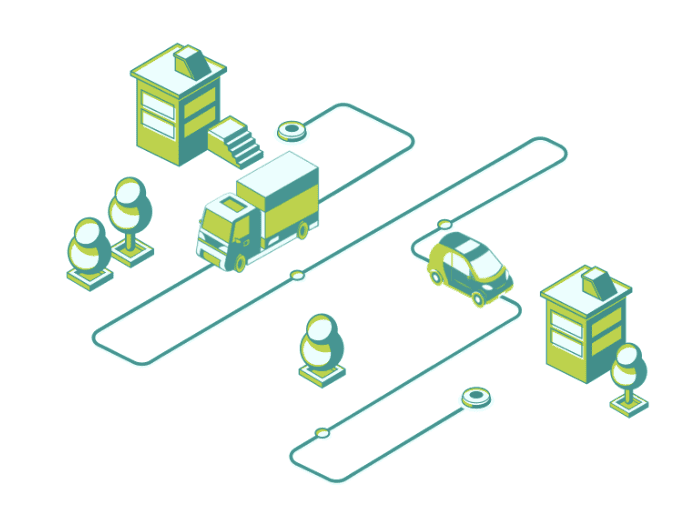
Modern-day fleet management platforms provide centralized dashboards for tracking vehicle usage, how much fuel is being consumed, idle time, and driver behavior. This helps optimize routing, asset allocation, and service schedules.
What it solves
- Overspending and underutilization in fleet inspection and operations
Benefits
- Lower fuel and service costs
- Smarter dispatch and routing
- Better resource planning
By integrating data from vehicle inspection for insurance tools, telematics, and route planning, operators can reduce operational costs holistically across both physical assets and manpower.
Conclusion
In the automotive world of today, efficiency is a non-negotiable. Technologies like AI-powered inspections, automated insurance claims, and intelligent fleet inspection platforms are no longer optional. They're essential for companies looking to reduce operational costs at scale.
Whether you're focused on speeding up vehicle inspection for insurance, automating claims, or managing rental fleets, the benefits are measurable and immediate.
Contact us to learn how our AI-powered vehicle inspection platform can support your transformation.


